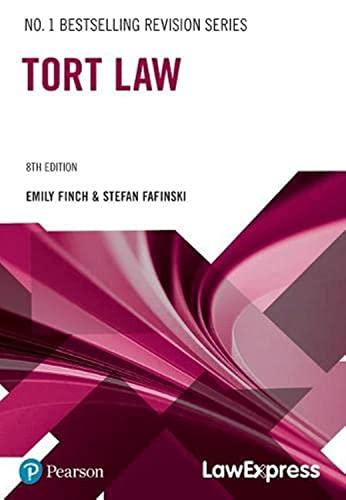Question
Hello and good day expert tutor! I am required to advance read about preamble and the bill of rights for our subject NSTP-CWST. Can I
Hello and good day expert tutor! I am required to advance read about preamble and the bill of rights for our subject NSTP-CWST. Can I ask of you to try to explain them to me in Tagalog or Filipino, which I will much appreciated to understand. I only include half of the Bill of Rights as it would be a lot. Thank you expert tutor, if you can try to explain them to me.
ARTICLE III
PREAMBLE
We, the sovereign Filipino people, imploring the aid of Almighty God, in order to build a just and humane society and establish a Government that shall embody our ideals and aspirations, promote the common good, conserve and develop our patrimony, and secure to ourselves and our posterity the blessings of independence and democracy under the rule of law and a regime of truth, justice, freedom, love, equality, and peace, do ordain and promulgate this Constitution.
BILL OF RIGHTS
Section 1. No person shall be deprived of life, liberty, or property without due process of law, nor shall any person be denied the equal protection of the laws.
Section 2. The right of the people to be secure in their persons, houses, papers, and effects against unreasonable searches and seizures of whatever nature and for any purpose shall be inviolable, and no search warrant or warrant of arrest shall issue except upon probable cause to be determined personally by the judge after examination under oath or affirmation of the complainant and the witnesses he may produce, and particularly describing the place to be searched and the persons or things to be seized.
Section 3. (1) The privacy of communication and correspondence shall be inviolable except upon lawful order of the court, or when public safety or order requires otherwise, as prescribed by law.
(2) Any evidence obtained in violation of this or the preceding section shall be inadmissible for any purpose in any proceeding.
Section 4. No law shall be passed abridging the freedom of speech, of expression, or of the press, or the right of the people peaceably to assemble and petition the government for redress of grievances.
Section 5. No law shall be made respecting an establishment of religion, or prohibiting the free exercise thereof. The free exercise and enjoyment of religious profession and worship, without discrimination or preference, shall forever be allowed. No religious test shall be required for the exercise of civil or political rights.
Section 6. The liberty of abode and of changing the same within the limits prescribed by law shall not be impaired except upon lawful order of the court. Neither shall the right to travel be impaired except in the interest of national security, public safety, or public health, as may be provided by law.
Section 7. The right of the people to information on matters of public concern shall be recognized. Access to official records, and to documents and papers pertaining to official acts, transactions, or decisions, as well as to government research data used as basis for policy development, shall be afforded the citizen, subject to such limitations as may be provided by law.
Section 8. The right of the people, including those employed in the public and private sectors, to form unions, associations, or societies for purposes not contrary to law shall not be abridged.
Section 9. Private property shall not be taken for public use without just compensation.
Section 10. No law impairing the obligation of contracts shall be passed.
Section 11. Free access to the courts and quasi-judicial bodies and adequate legal assistance shall not be denied to any person by reason of poverty.
Step by Step Solution
There are 3 Steps involved in it
Step: 1

Get Instant Access to Expert-Tailored Solutions
See step-by-step solutions with expert insights and AI powered tools for academic success
Step: 2

Step: 3

Ace Your Homework with AI
Get the answers you need in no time with our AI-driven, step-by-step assistance
Get Started


